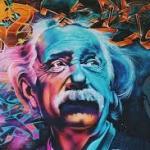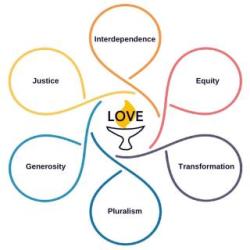
Thanks to the recent release of Denis Villeneuve’s epic film “Dune Part Two,” Frank Herbert’s original Dune novel is likely enjoying a surge in new readership. There are many who are coming to the book for the first time thanks to this new theatrical iteration. They will now be able to delve deeply into the rich narrative that Herbert created and learn even more about the fascinating universe in which the story is set. There are, of course, several differences between the book and film versions of the story. This is always the case when translating a tale of this nature from one medium to another.
To make a written story work for the screen, there are unavoidable alterations that have to be made. The debates over which interpretation is better, why certain changes were made, or why certain book elements didn’t make it into the film are no doubt raging out there in You Tube land. Those conversations, many of which are interesting and valuable in their own right, are not our focus here; the story’s life lessons are, and how powerful our stories can be in inspiring us and giving us a sense of direction and purpose.
Dune has always resonated very deeply with me on a level that few other written works have reached. It ranks up there in my experience with the Homeric epics and The Lord of the Rings in terms of individual impact. When a work sticks with me like that, it becomes something I think about every single day in one context or another, its lessons searing themselves into my soul and guiding my daily interactions with the civilization around me. They become facets of my spiritual makeup. Here are three aspects of Herbert’s story that have ingrained themselves into my consciousness and manifest daily in my work and interactions with others.
The Litany Against Fear
The Bene Gesserit Sisterhood, a powerful, clandestine organization from the Dune universe that seeks to manipulate and control those in positions of power, as a part of their training have a mantra that we would all benefit from memorizing. It is known as the “Litany Against Fear,” and it goes like this:
I must not fear.
Fear is the mind-killer.
Fear is the little-death that brings total obliteration.
I will face my fear.
I will permit it to pass over me and through me.
And when it has gone past, I will turn the inner eye to see its path.
Where the fear has gone there will be nothing. Only I will remain. (https://dune.fandom.com/wiki/Litany_Against_Fear)
I have this passage mounted on the wall above my night stand. Every morning (along with Meditations, Book 2, Passage 1) I recite it when I wake up, and I do so again just before going to bed at night. This is to keep the words cemented in my memory. I then am able to recite the passage at any time during the day when I face any level of anxiety or fear. It dovetails very well with similar passages from Seneca’s Letters From A Stoic and The Meditations of Marcus Aurelius, two spiritual guidebooks I read from often. Here is how Seneca and Marcus put it:
We are more often frightened than hurt; and we suffer more from imagination than from reality. –Seneca
Never let the future disturb you. You will meet it, if you have to, with the same weapons of reason which today arm you against the present. ― Marcus Aurelius, Meditations
Both passages remind us that for each of us fear is just in our mind; our imaginations are what give it its power. We need to face it down with our reason and not let it build up inside us. We often learn that the thing we were so afraid of never comes to pass at all, or if it does, the reality of its arrival is far less scary than our imaginations led us to believe it would be. I have struggled with some degree of anxiety for most of my life, having had a very acute phase of it from 2014-2022. Looking back, I can’t really rationally explain what it was that was making me feel as I did, and today I feel a degree of shame for wasting so much time during those years while obsessing over things that never came to pass. I never talked to anyone about what I was going through, I never took any kind of medications for anxiety control; I read the Stoics and Dune, and they, more than anything or anyone else, got me through that challenging time and helped me to face and conquer my irrational fears.
AI and Technological Overreach
In my work as a high school teacher, I am constantly dealing with the challenges that accompany trying to balance the use of technology while simultaneously helping students avoid its many pitfalls. I was a high school student in the 1980’s, when no one owned a computer, the internet did not yet exist, and no one carried a device of such insidious power as a smartphone in their pockets. We each had a Walkman on which to play cassette tape music, but that was about it. For everything else, we called each other on landlines and (gasp!) talked face to face about our issues.
I am convinced that since my formative years were during an era when there was nothing like the technology that permeates society today, I am also relatively immune from the addictive effects those technologies incite. I am human like everyone else, just as potentially susceptible to the powers of the algorithm and the dopamine hits that things like social media can generate. However, I never started down that road in the first place; I have never used a social media app to communicate with anyone, using email only, and that exclusively at work. I do own a smartphone, only due to how ubiquitous it is and how the society has made it nearly impossible to function without it. I use it as little as possible, employing only its calculator and stopwatch. I don’t use its camera. I use You Tube, but solely to listen to music.
I have also read 18 (and counting) books on the effects that technology, specifically social media, is having on young, adolescent minds. I often discuss these findings with the kids with whom I work, and they agree that the problem is there and is a serious one–and then they quickly check their phones to see if anything interesting might have happened during our more mundane, face to face conversation. Don’t even get me started, as an English teacher, on the impacts of programs such as ChatGPT on student writing and study habits.
So how does this connect to Dune? If you are a new fan to the Dune universe, perhaps having only seen the new films, did you notice that there are no computers in the year 10,191? There are machines and advanced mechanical tools, but no computers, or “thinking machines” as they are referred to in the book. That is because of a war that took place in the Dune universe known as the “Butlerian Jihad” between humans and the thinking machines that had enslaved them. Think of the battle between humans and machines in the “Terminator” franchise, only in the end the humans win.
In the universe of Dune, computers are outlawed, and the potential of the human mind is tapped in full. “Human computers,” known as “mentats,” are trained to organize their minds to calculate and work as efficiently as computers once did. A typical mantra of the “Butlerians,” or fervent anti-technology crusaders in the Dune universe is “The Mind of Man is Holy.” They see as anathema almost any form of technological progress.
Now, I am not a complete Butlerian or Neo-Luddite. I am fully capable of seeing the advantages of specific technologies, particularly medical ones. I am just particularly suspicious and wary of the effects that modern technologies can have on those most easily susceptible to them, such as children. A Netflix documentary I highly recommend is “The Social Dilemma,” featuring many of the computer and software engineers who helped to enthusiastically design the apps and features of today’s most popular technologies, and who now regret their involvement and express genuine fear of the things they helped to create. Many will not let their own children have access to the very devices they helped design, being intimately familiar with what those technologies are capable of.
We need to open our eyes and see what unfettered technological access with little to no oversight is doing to us, and especially to our kids. I am not calling for a war on technology as had to be fought in the Dune universe (let’s hope we don’t see such a day), but I am calling for common sense reforms that can help to mitigate the damage we are seeing. Let the circumstances depicted in Dune stand as a warning as to what could happen should our technologies become our masters as opposed to our tools.
Extreme Tribalism and the Charismatic Messiah
One of the most powerful warnings Frank Herbert conveys in Dune is how a charismatic leader can rise and inspire an almost messianic following. We are living in times of great polarization and tribalism in our world, and those who know how to tap into the emotions driving such conditions can rise and harness them to less than favorable ends. We are led to believe that Paul Atreides, the supposed protagonist of Dune, is a hero figure we can get behind; he is working to help liberate the Fremen, the inhabitants of the planet Arrakis, by helping them–leading them–to defeat their enemies the Harkonnens who have been occupying their world for decades. For centuries, the Bene Gesserit, the same manipulators mentioned earlier, have been laying the foundations of a belief system among the Fremen; they believe an outer-world messiah will come to them and liberate their planet, according to prophecy.
When Paul Atreides arrives and begins to fulfill some of the prophecy’s conditions, he slowly begins to amass followers. He at first wishes to learn their ways and to help them fight a common enemy, but this desire transforms into a plan to use the Fremen numbers to mount a campaign of revenge, and ultimate conquest. Paul himself has visions of a future filled with galactic carnage for which he is responsible, and is unable or unwilling to stop it. Where audiences of “Dune Part Two” have been cheering for Paul and the Fremen as they battle the Harkonnens, they likely leave the theater thinking, “Maybe it didn’t turn out as great as we thought it would.”
We as a people must be on our guard against any who would take advantage of our emotions and attempt to manipulate us, demanding undying loyalty in the name of something such as “keeping us safe.” This can lead to blind, cult-like behavior, devoid of reason and the capacity to engage in civil debate. Such individuals can arise at any level of the society if they see opportunities for manipulation. The ancient Romans drove out their kings, replacing monarchy with the Roman Republic. This lasted for 500 years or so, but in time, when the conditions were right, the dictators arose and took advantage of their moments.
We must never offer would-be messiahs or dictators such a moment. In Dune Part Two, Paul Atreides, now Paul Muad Dib Atreides, Duke of Arrakis and Emperor of the Known Universe, declares when his enemies oppose him that he will “lead them to paradise,” launching a war that will kill billions and spread across the galaxy. He knows this will happen, and can no longer hold back the tide. He is no longer the hero we once believed him to be.
History is replete with similar figures: Lucius Cornelius Sulla, Gaius Julius Caesar, and others. They may once have held noble purposes in the forefronts of their hearts, but in the end, once they acquired the power they sought, only suffering followed. We can’t allow our spiritualities to be subverted by those charismatic and manipulative enough to use them against us; we must be on our guard and speak out against the misuse of information. Only through critical thinking and civil conversation can we build the skills necessary to immunize ourselves from the manipulations of the charlatans.
Though these are not the only pressing issues and warnings that Dune raises, they are the three that resonate the most with me. I wear a replica of the ducal signet ring of House Atreides, emblazoned with a stylized hawk emblem used to seal official documents. For me, the bird on the ring is symbolic of a phoenix, which reminds me to renew myself each day when I put it on and each school year when I embark on developing the reading, writing, communicating, and thinking skills that the students in my classes need. The ring reminds me, every moment of every day, to face my personal fears, to stand against the excesses and abuse of modern technologies, and to empower students and those around me with the reasoning skills to be able to see through the manipulations of the charismatic but wholly manipulative individuals who would work to turn our worst natures against us and follow them unquestioningly to unfortunate ends.
I am sure that there are stories, written or filmed, that resonate with you so deeply and spiritually that they have impacted and/or altered your very worldviews, sticking with you and guiding how you approach your daily experiences and interactions. Work to embed your stories in small but meaningful rituals throughout your day so that their deepest lessons stay with you and help you to navigate the challenges each day brings. These can be small meditative passages you recite (such as the Litany Against Fear), symbols you wear (such as the signet ring) music you listen to (the film soundtrack or an ambient thematic background compositions to set the atmosphere or mood around you), journal entries, or any combination of the above that centers you and reminds you about who you are and what you stand for. Our stories inspire and guide us, and have done so for centuries. We need to rediscover their powers and apply them in practical, meaningful ways. Without them, we lack history, purpose, or a collective sense of identity. Civilizations that lack such things face collapse.
What is the story that resonates most with you?
__________
Learn about Membership in the Spiritual Naturalist Society
The Spiritual Naturalist Society works to spread awareness of spiritual naturalism as a way of life, develop its thought and practice, and help bring together like-minded practitioners in fellowship.
SNS strives to include diverse voices within the spectrum of naturalistic spirituality. Authors will vary in their opinions, terms, and outlook. The views of no single author therefore necessarily reflect those of all Spiritual Naturalists or of SNS.














